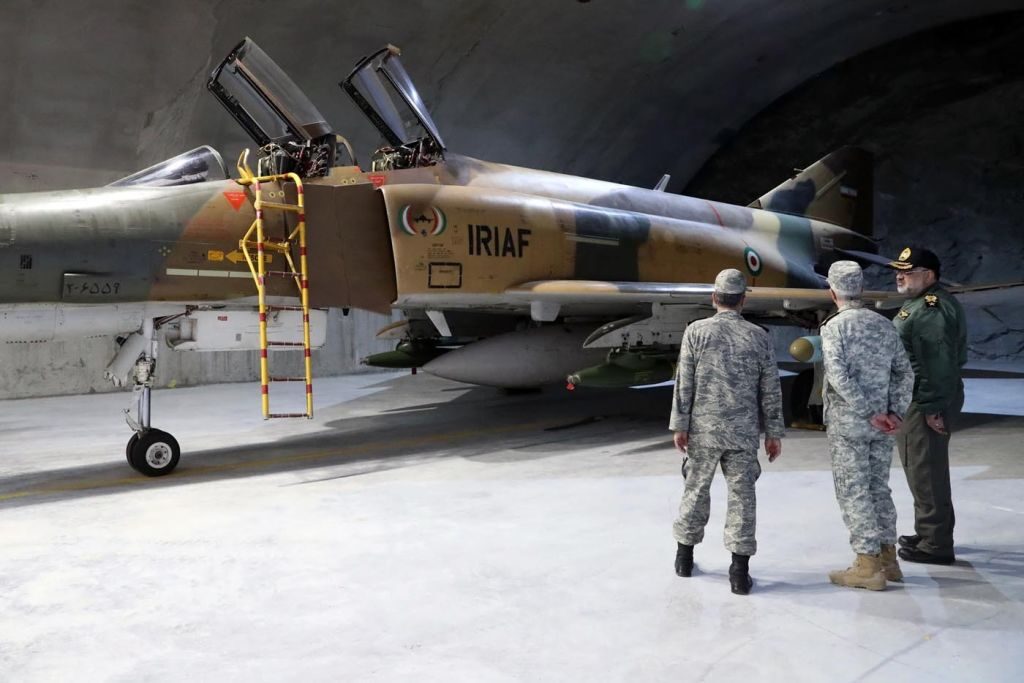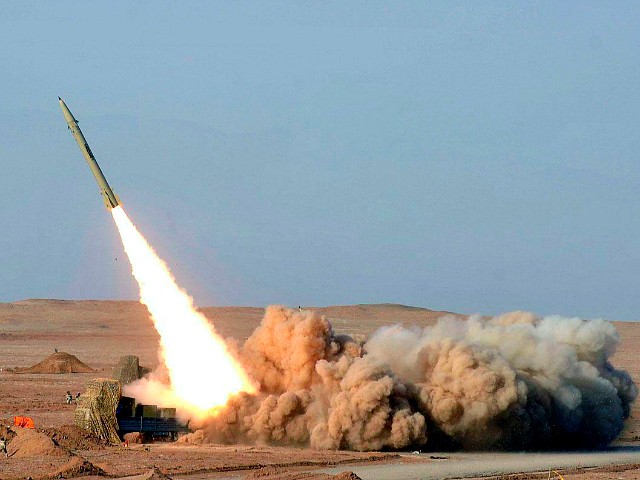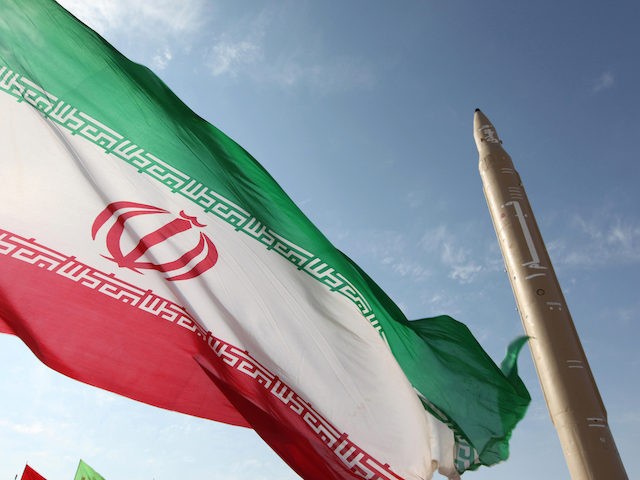Ali Baqeri, the lead Iranian negotiator on the Joint Comprehensive Plan of Action (JCPOA) nuclear deal, announced on Wednesday that U.N. restrictions on Iran’s missile program have lapsed.
Baqeri (pictured) celebrated the end of the “unfair restrictions” on Iran’s ballistic missile program and boasted the terms of the JCPOA prevent its signatories from imposing any further sanctions against Tehran, no matter what steps it takes to develop long-range nuclear missiles.
The Russian Foreign Ministry immediately announced that it will no longer seek “prior approval by the U.N. Security Council” for selling missile technology to Iran, although it did not announce any imminent plans to make such a sale.
Russia urged the European Union (EU), United Kingdom, and United States to drop their own separate sanctions against Iran’s missile program, dismissing them as merely “an effort to settle political scores with Tehran.”
Russia has made extensive use of Iranian drones during its invasion of Ukraine and will almost certainly become an eager customer for Iranian missiles, now that the restrictions have been lifted.

Iranian Armed Forces Chief of Staff Maj.-Gen. Mohammad Ali Baqeri, Iran’s Army chief, Maj.-Gen. Abdolrahim Mousavi and military officials visit the first underground air force base, called “Eagle 44” in Iran February 07, 2023. (Iranian Army / Handout/Anadolu Agency via Getty Images)
The restraints on Iran’s missile technology were imposed under the 2015 JCPOA agreement negotiated by former President Barack Obama. The restrictions were designed to automatically expire on October 18, 2023, a date known as “Transition Day” in the text of the agreement.
The JCPOA included a “snapback” mechanism to extend the sanctions further, but it was not invoked by any of the signatory nations, even though Iran’s proxy Hamas just perpetrated one of the most savage terrorist attacks in history against Israeli civilians.
The U.K. government on Wednesday said it would extend its own sanctions against the Iranian missile program, as would the EU, as a “response to Iran’s serious and escalating non-compliance with the JCPOA.”
“This step is a proportionate and legitimate response to Iran’s nuclear escalation and is fully compliant with the JCPoA. The extent of Iran’s nuclear advances has no credible civilian justification. The program poses a grave threat to international peace and security, and undermines the global non-proliferation system,” the U.K. explained.
The statement also called Iran out for “providing missile and drone technology to its partners and proxies.”
European Union sources told Reuters on Tuesday the EU would retain its own sanctions due to “Russia’s use of Iranian drones against Ukraine; the possibility that Iran might transfer ballistic missiles to Russia; and the need to deprive Iran of the benefits of the nuclear deal, which it violated after the U.S. withdrew.”

In a picture from Iran’s ISNA news agency on July 3, 2012, an Iranian short-range missile (Fateh) launched during the second day of military exercises, codenamed Great Prophet-7, for Iran’s elite Revolutionary Guards in Iran’s Kavir Desert. (AFP/Getty)
Britain, France, and Germany signaled in September they were frustrated with Iran’s violations of the JCPOA – especially its dogged insistence on enriching uranium beyond the allowed limits, and its drone sales to Russia – but not frustrated enough to invoke the snapback restrictions. Instead, they planned to impose their own, largely symbolic measures, which would be far less of an impediment to Iranian missile development and sales than the U.N. sanctions were.
The Foundation for the Defense of Democracies (FDD) warned on Monday that Iran would likely provide missiles to its proxies, including “Hamas, Hezbollah, Islamic Jihad, and the Houthis.”
“Lapsing UN penalties on Iran’s ballistic missile tests, transfers, and other activities will be yet another sign of the international community’s irresolution to say and do the right thing on Iran. It will, therefore, embolden Iran to double down on its terror proxies and arms proliferation. The more confident Tehran feels, the more lethal the threat,” cautioned FDD senior fellow Behnam Ben Taleblu.
FDD called on the Biden administration to work with the U.K. and EU to activate the snapback but, instead, the administration announced sanctions on about twenty individuals and entities it accused of assisting Iran’s “destabilizing ballistic missile and unmanned aerial vehicle (UAV) programs.”
“These sanctions will exert pressure on Iran’s missile and UAV program in addition to constraining Iran’s conventional arms transfers and ongoing military relationships with countries like Venezuela and Russia, including Iran’s provision of UAVs that Moscow is using against civilian targets in Ukraine,” an unnamed State Department official told reporters.
The administration also issued a business advisory, warning American companies not to sell dual-use technologies to Iran or its proxies.

COMMENTS
Please let us know if you're having issues with commenting.